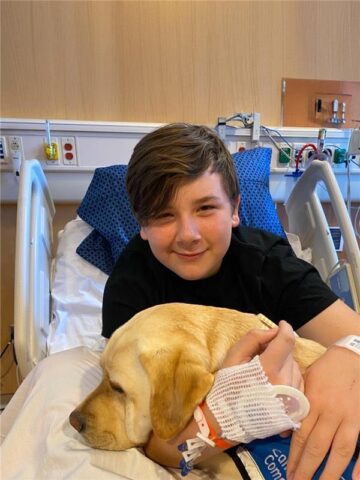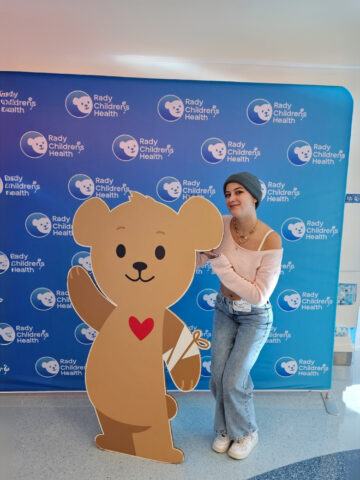2-year-old Karley’s story highlights the vital work of rehabilitation services team
The 2-year-old bounds into the small room used as a gym for recovering patients and within seconds has her hands on a tennis ball and some stickers.
“Karley,” one of her former rehabilitation specialists says a minute later. “I remember what you had fun with last time – where is it?”
In a flash, Karley is pushing around a toy shopping cart.
Danielle Keuilian, a speech pathologist, and physical therapists Denee DiPilla George and Nancy Coursey are overjoyed watching Karley, her light brown hair in pigtails, roam around and play.
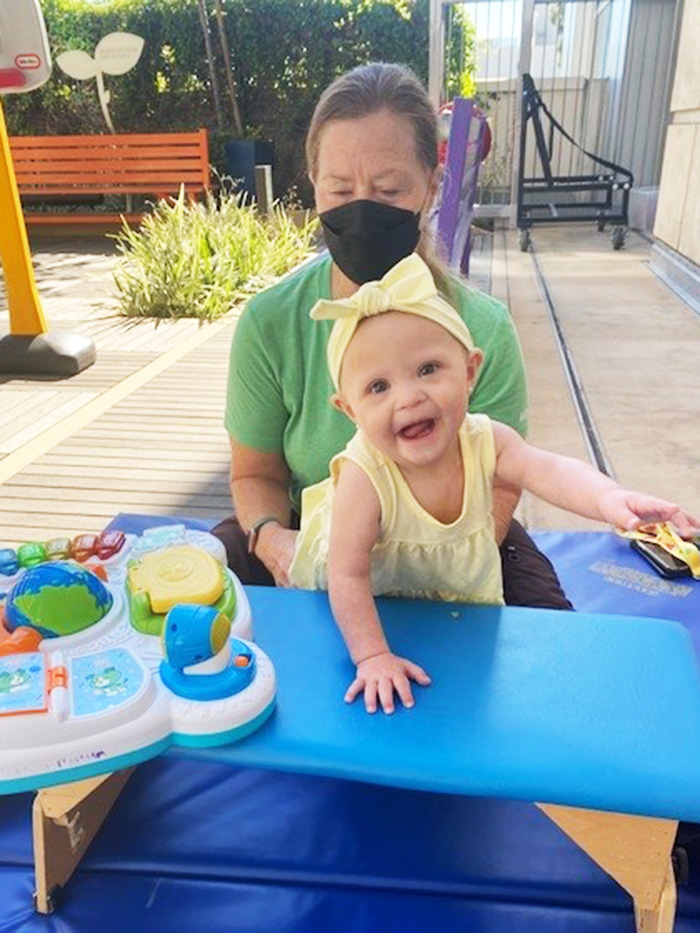
The last time the three saw her was five months ago. At that time, Karley wasn’t walking.
The three specialists, along with occupational therapist Lauren Newhouse, spent nine months with Karley when she was an inpatient at CHOC recovering from myelodysplastic syndromes (MDS), a blood disorder that is considered a type of cancer.
Karley had mild gross and fine motor delays. She also has Down syndrome, the genetic disorder associated with physical growth delays and mild to moderate developmental and intellectual disability.
Because of the hard work of her dedicated rehab team – along with Karley’s parents, Niki Lisenko and Michael Kinsey, and an older sister, Hailey, 3, and grandmother, Ana, who all work with and encourage her – Karley stayed on track with her age-appropriate milestones and now is only a little behind on speech.
“She’s a great example of our ability to change a child’s life,” Nancy says.
The ‘therapists’ burden’
The work of Nancy, Danielle, Denee, Lauren and other members of CHOC’s Rehabilitation Services Department is in the spotlight with National Rehabilitation Awareness Week (Sept. 18-22) in full swing.
While doctors, nurses and other care team members obviously play a huge role in the successful outcomes of CHOC patients, so, too, do rehab specialists – something that typically isn’t top of mind among the general public.
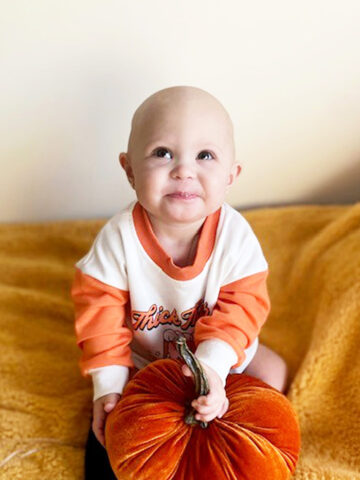
“The rehab team is amazing,” Niki said when she and Karley swung by CHOC recently to visit the specialists. “They’re like family. We love them. Without them, I feel that Karley would be so much more delayed at this point.”
Rehab specialists at CHOC see, on average, six to eight patients a day throughout the hospital – from newborns to young adults in oncology, the pediatric intensive care unit (PICU), trauma, neurology, surgery, etc.
“You name them,” Denee says, “we see them.”
The goal is to get patients as independent and at home as safely and quickly as possible.
“It is the therapists’ burden: Our job is to work ourselves out of a job,” Lauren says.
Teamwork amongst CHOC’s rehabilitation services
Occupational therapists like Lauren work on helping patients master daily activities.
Speech pathologists like Danielle also handle feeding issues.
And physical therapists like Denee and Nancy work to increase motor development and function and improve strength and endurance. Often, they work as a team.
And in Karley’s case, they worked intensively with her during the critical window of six months and 18 months of age.
They worked with her three times a week for a minimum of 30 minutes per session.
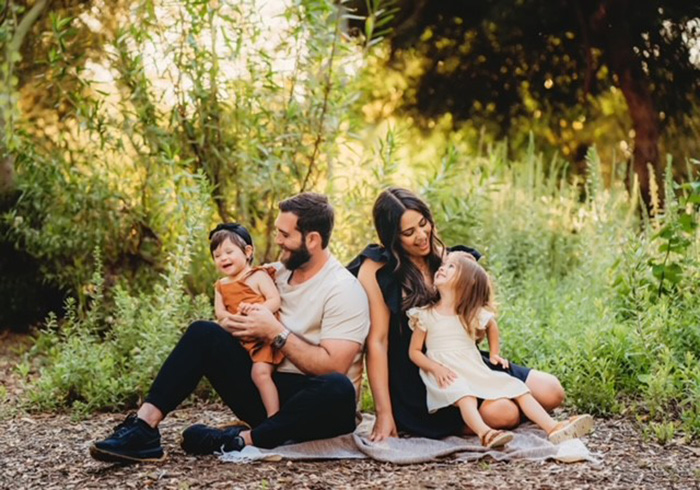
“She had a wonderful drive to play,” Lauren says. “She was very curious about anything we brought into the room.”
Adds Lauren: “Our job is for the kids not to know they’re in therapy – to make it fun and enjoyable. We help them figure out how to cope, adjust and thrive.
“We can’t change what’s happened to them, but we can really influence how they work through their condition. That’s what I think is our unique contribution.”
Tiny red spots
Karley was diagnosed with Down syndrome about a week after she was born.
That surprised her parents, who immediately began researching the condition, which affects more girls than boys and is fairly common, with more than 200,000 cases in the United States each year.
“We were scared at first,” Niki says. “But she was meant for us.”
Karley’s MDS presented itself when she was 6 months old. During a wellness check, Niki and Karley’s pediatrician noticed tiny red circular spots on her neck.
Karley had been receiving electrical stimulation treatments for feeding therapy and they initially thought her skin was irritated. But there was also a spot on her chest.
The bruises turned out to be petechiae – small, colored spots on the skin that form because of bleeding that can be a sign of a blood disorder.
After a blood test showed Karley had very low platelet numbers, her pediatrician told her to go to the ER immediately.
About a week later, in March 2021, CHOC pediatric oncologist Dr. Jaime Frediani diagnosed Karley with MDS, which in most cases progresses to acute myeloid leukemia (AML).
Myelodysplastic syndromes in remission
For her treatment, Karley received blood and platelet transfusions, a bone marrow biopsy, an implanted central catheter, a lumbar puncture, and six rounds of chemotherapy.
But she tolerated it all relatively well, Niki says.
Turns out that kids with Down syndrome are more prone to types of cancers like MDS. But their genetic makeup also makes them respond better than most children to chemotherapy. In fact, their success rate with MDS is 95%.
Karley’s cancer is in remission and she continues to see Dr. Frediani for monthly checkups.
Baby steps
During her time at CHOC, Karley rolled over for the first time.
She sat up.
She ate her first solid food.
She took her first steps.
She celebrated her first birthday.
She discovered coloring.
Now, Karley uses some sign language and also knows a few words, like juice and shoes and eat and more and please and thank you.
Her progress has been nothing short of amazing, members of her rehab team say.
“The family made it easy for us to do our job because they were so involved,” Nancy says.
A tiny perfectionist
Now playing on the patio outside the small rehab gym, Karley zips around on a three-wheeler.
Niki watches in wonder.
Her baby has come a long way.
In rehab, Karley wanted to practice everything she learned, Niki says.
“When she learned how to roll back and forth,” her mother recalls, “she became obsessed with getting it right.”
Karley and her sister are making up for lost time. Because of COVID restrictions, the two missed a lot of time growing up together.
“They love each other so much,” Niki says.
And Karley? She’s a bundle of joy, says her mom.
“She makes me more patient,” Niki says. “She’s so sweet and loving. It’s crazy how much I love this little girl.”
Get more expert health advice delivered to your inbox monthly by subscribing to the KidsHealth newsletter here.
Learn more about CHOC’s rehabilitation services
Using a comprehensive team approach, our physical therapy, occupational therapy and speech and language pathology specialists work together to provide complete care for children of all ages.

